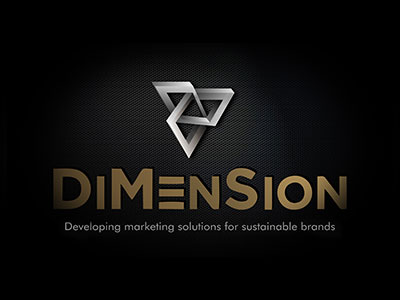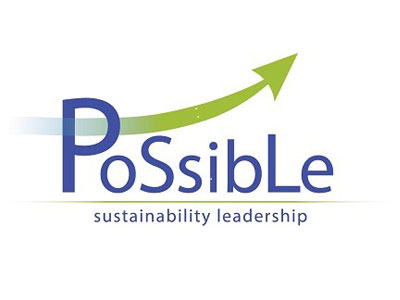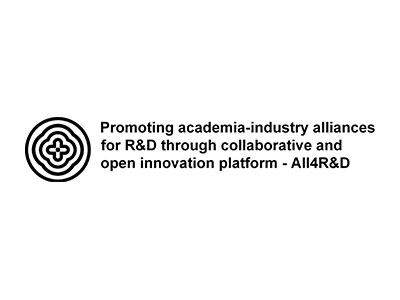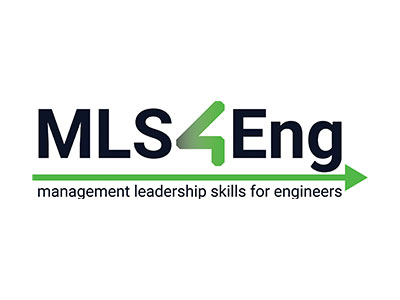IECE acts as a catalyst inspiring business growth and enabling long-term impact
We support companies to transform into learning organisations by managing knowledge and intellectual capital. For each capital (intellectual, human, organisational, structural, relational, process and innovation) activities and indicators are specially designed matching the strategic goals, the organisational structure and the available resources of the company.
Sustainable competitive advantage through embedding intellectual capital in the business plan and strategy
We provide guidance and consultancy services to create your company’s comprehensive model of embedding intellectual capital in the business plan and strategy. The model aims to increase the sustainable performance of your company and ensure its competitive advantage, suggesting a methodology for managing intellectual capital and custom-design solutions.
What is Intellectual Capital?
‘The intellectual material – knowledge, information, intellectual property, experience – that can be put to create wealth’
Intellectual capital and knowledge management are the basic building blocks (cornerstones) of an effective 21st-century management model. All company’s knowledge, applied experience, professional skills, organisational culture, relations and innovations that provide a competitive advantage in the market are elements of intellectual capital.
The ability to effectively nurture, capture, leverage, and share a company’s knowledge resources is key that provides strategic power and advantage in the market.
IECE’s model for managing intellectual capital was recognised and awarded with 1st Place prize of Knowledge Management and Intellectual Capital Excellence Awards at the longest-running Academic Knowledge Management Conference in Europe. IECE team presented the winning case: “Innovative Model for Development of Learning Organisations Through KM and Intellectual Capital”.
Intellectual Capital
- Creating custom-made business solutions for managing intellectual capital and knowledge
- Measuring IC using qualitative and quantitative methods
- Assessment of the status quo and future market opportunities
- Developing programs and initiatives to manage all components of intellectual capital
- Establishing monitoring system to evaluate progress and effectiveness of implemented actions
How we do it?
We employ complex methodology with 4 steps approach:
- Analysis and Mapping
- Development of Programs and Indicators
- Implementation of Pilot Initiatives
- Monitoring and Evaluation
Effects and benefits from knowledge management (KM) and intellectual capital (IC) are multiple:
- the company’s knowledge is properly stored, visible, used, and has an added value,
- new knowledge is co-created in joint research projects with Universities with applied focus relevant to the business strategy of the company,
- knowledge is shared with the mentorship and internship program,
- investments in IC positively influence the achievement of its business goals,
- organisational services and processes are upgraded or renewed, and
- the productivity and the organisational performance is improved and sustainability-oriented.
Explore more about the consultancy services we offer in managing different types of capital
Human Capital
‘The collective capacity of the organisation to create the best solutions using the knowledge of the employees’
The human capital represents the ‘human factor’ and gives the ‘distinctive character’ of the company.
We enable managers to embrace transformation of human resources into human capital as a base for acquiring competitive advantage of the organisation. Our services include:
- Aligning business goals with human resource development
- Managing individual and organisational learning
- Knowledge management strategy
Knowledge
Management
System
- Detection (mapping) of knowledge (basic level, advanced level, specific knowledge, research potential)
- Assessment of needs for certain knowledge
- Establishing internal Training center
- Creating training plan and professional development program
- Building support system for organisational memory
- Measures for sharing, creating and retaining knowledge
- Managing external knowledge networks and infrastructure
- Creating evaluation criteria for measuring employees performance
- In depth analysis of the performance
- Employee satisfaction measures
- Improving employee motivation and introducing new motivational techniques
- Measuring the effects of motivation techniques
- Programs for increasing employees engagement
Performance
Management
System
Career
Development
Program
- Designing Career road maps for each employee
- Personal analysis of the potential each employees has
- Matching companies goals with career development objectives
- Development program for transforming human resources into human capital
- Talent management
- Mentorship program and effectiveness monitoring system
- Internship program and activities
Relational Capital
Relational capital is a component of intellectual capital, which focuses on the intangible value that the organisation’s relationships with its stakeholders bring. It is the sum of all relationships that the organisation has with all its stakeholders. We provide guidance and assist companies in the ability to manage interaction with all stakeholders. Creating and sustaining the relational capital is essential for a company’s growth, profitability, and thus its valuation.
Relationship
Mapping
- Measuring relational capital
- Customer satisfaction
- Customer loyalty, frequency of purchases
- Percentage of new customers per year
- Dependence on key customers
- Percentage of complaints or remarks and suggestions for improving customer service
- Assessing the depth and strength of the relationships at the organisational level
- Maintaining reputation in the business and social spheres
- Re-branding activities
- Implementing sustainability principles
- Market analysis, competitors, potential investments
- Maintaining a competitive advantage in the domestic market
- Expanding the operations in markets in other countries
- Choice of most suitable forms of promotion, networking, finding partners
Building
Sustainable
Brand
Nurturing
Relationships and
Partnerships
- Maintaining and preserving current relationships and partnerships
- Establishing relationships with partners, suppliers and other stakeholders
- Designing model for creating strategic partnerships and joint ventures
- Explore networking possibilities
- Positioning and promoting the company as attractive company for young and talented professionals
- Event management
Innovation Capital
“Innovation is not an end in itself – it is a means. In order to companies to become more sustainable, be able to rise to new challenges, continue to generate revenue, they need to use their innovative capacities to adapt and capture new opportunities.” – Sasha Baillie
Investing and managing innovation capital provides numerous opportunities for companies, such as: to place innovative products or services on the market, introduce new technology, create new knowledge, modernise and bring new equipment, create patents for developed products, etc. These actions provide certainty to gain competitive advantage and establish sustainable brand and uniqueness.
Establishing
Cooperative
R&D Centres
- Develop a methodology for collaboration and open innovation
- Partner up with industry in knowledge creation and transfer, research and innovation
- Assess the current situation and the entrepreneurial and innovation potential of the company
- Establishment of the Cooperative R&D Centre
- Preparation of strategic documents and portfolio of activities
- Provide recommendations for commercialisation of R&D results
- Establish a model of collaboration and joint research projects
- Develop and implement research and innovation projects in collaboration with faculties, other companies and Master and PhD students
- Knowledge and technology transfer, modernisation of processes and introducing new standards
- Co-creation of knowledge and its integration in the production processes
- Commercialisation of research results
Applied Research and
Innovation Projects
Funding Opportunities for
Research and
Innovation Projects
- Evaluation of the needs, attractiveness of the project idea, choice of the most suitable financing mechanism and assessment of project eligibility
- Perform partner search and design of a consortium, design of project application
- Preparation of business plan, investment pitch and mapping of companies for private sources and developing applications for public sources
- Support in management research, education and innovation EU projects
Structural Capital
We work side-by-side with companies on strategic and business planning, new business models and go-to-market strategies, changing the organisational mindset and driving organisational transformation. In the essence of all actions is revising or creating strategic documents and setting action plans and SMART goals, supported by digital technologies to enable easier analysis and information and knowledge management
Strategy
- Corporate and business unit strategy
- Developing strategic documents based on in-depth analysis
- Business growth strategy
- SWOT, TOWS, PESTEL assessments
- Development of implementation action plans
- Setting annual targets and indicators
- Setting up Idea management system
- Assessment of the current organisational structure
- Review of the job description for each work position
- Analysis of type of projects and activities of the company
- Creating strategic documents and company’s goals
- Setting up system of non-financial indicators for monitoring and evaluating progress
Organisational Design and
Structure
Digitalisation
- Setting a system to transform organisational processes by using digital technologies
- Digital strategy design
- Creating procedures for storing knowledge
- Data analytics
- Design thinking
- Supporting preservation of organisational memory
- Aligning organisational processes and structure with digital system
Organisational Capital
Organisational capital can be reflected by the company’s values, its organisational philosophy and systems. Even though intangible they leverage the company’s capability in delivering goods or services. We are very dedicated to supporting companies to nurture this capital, especially by creating tailor made initiatives for positive organisational culture and climate, as well as exploring most suitable formats for internal and external events. Another uniqueness that IECE has is the certification by ICQ Global to provide service and education aiming to support individuals, teams and organisations in their growth and development
Organisational Culture and
Climate
- Analysing the organisational climate and its elements
- Assessment of management and leadership styles, decision making process
- Improving organisational culture
- Creating program and actions for CSR – Corporate Social Responsibility
- Risk management strategies and measures
Assessment, coaching and training in Global Disk™ * and Growth Mindset for individuals, teams and companies
- Using Global DISC™ to help companies keep their best people and attract new talent
- Support management through Intelligent Global Leadership to lead company staff in a way that they feel valued, understood and able to turn their differences into synergy instead of painful liability
* Global DISC™ – an ICF accredited, multi award-winning behavioural model designed to unlock individual and group potential.
Capacity Building of Teams and
Managers
Event Management
- Creating plan for internal and external events as a tool for managing organisational capital and enhancing the organisational culture
- Setting up organisational values and reflecting them during the events organised for internal and external stakeholders
- Promoting company’s success and best practices on different events
- Guidance for organising sustainable events
Process Capital
Process capital is closely linked to structural capital, and it includes the techniques, procedures, and programs that implement and enhance the delivery of goods and services. We assist companies in reviewing current procedures, processes, manuals and related documents, and create and integrate measures and actions to manage process capital.
Change Management
- Support to drive change by identifying core problems, creating, and implementing the restructuring plan
- Inspiring sustainability leadership and management styles to embrace transformation
- Capacity development programs for managers and company’ units
- Review of core business functions
- Optimisation of process and procedures
- Aligning the organisational process with the organisational structure and set formal strategic and operational documents
- Developing tailor made procedures and rulebooks for company purposes, such as, Code of conduct, Rulebook for competencies, mentorship program, Career development manual, etc.
Procedures and
Documents
Idea Management System
- Creating toolkit for idea management process
- Formulise procedure for generating, evaluating and implementing ideas from employees
- Creating a culture for sharing ideas and open discussion between employees, departments
- System for storing ideas and criteria for assessment
- Boost employees to propose new services and products, and improvement of the current ones
- Provide suitable incentives for all selected ideas


